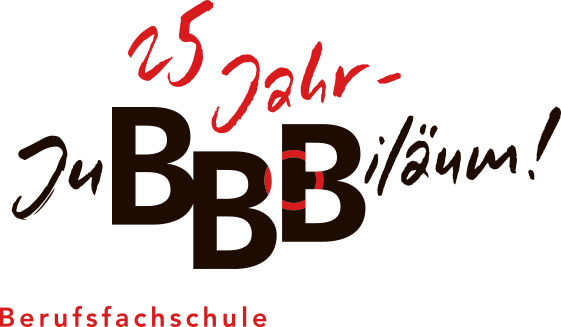Informatik
Freifach
Bausteln
Programmatisch gemeinte Wortneuschöpfung. In den Werkstätten des DIY (Do It Yourself) wird nicht mehr entweder gebaut oder gebastelt, sondern alles durcheinander, und die Grenzen zwischen den Gewerken werden bewusst überschritten. an den Ba(u)stelabenden kann man mit dem Computer spielen, Origami falten, Legosteine verbauen oder Trillerpfeifen mit dem 3D-Drucker herstellen, je nach Lust, Kenntnis und Laune. Es geht gleichermassen um traditionelle Handwerke wie um das neuste digitale Gerät. Die Beteiligten proben die Demokratisierung des Produktwissens und erfinden die Dingwelt neu, bauen sie um, versehen sie mit Intelligenz. „Gebaustelt“ werden besonders gerne „Maschinen, Roboter, Kunstwerke der Zukunft.
Quelle: Friebe, Holm/Ramge, Thomas (2008): Marke Eigenbau. Der Aufstand der Massen gegen den Massenkonsum. Frankfurt/New York: Campus.
Weitere Informationen und kurzfristige News sowie Änderungen auf:
https://baustel.li oder Mail an roger.stellrecht@bbbaden.ch

Schnellübersicht
- Roger Stellrecht
- 24 Plätze
- in Absprache mit dem Kursleiter
- vom 18.10.2023 - 03.07.2024
- 25 x 3 Lektionen
- Gebäude Martinsberg, neben der Treppe
- alle Berufsgruppen
- Fr. 100.00 - 300.00 in Absprache mit der Kursleitung
CCNA 7 Routing & Switching
Der CCNA Routing & Switching Kurs vermittelt Grundqualifikationen für den Einsatz als Netzwerktechniker oder im Help-Desk- und Pre-Sales-Bereich. Er dient zur Vorbereitung auf eine technische Ausbildung und vermittelt Kompetenzen für die Jobprofile Netzwerkinstallateur, Netzwerktechniker, technischer Help Desk, Verkaufsberatung und Basic Network Design.
Mit Erlangen des Zertifikats wird der Zugang zum Arbeitsmarkt auf Ebene der Teilqualifikation ermöglicht. Die Ausbildung beginnt bei SOHO-Netzen und geht schrittweise über zu komplexeren Unternehmensnetzwerken. Auf die theoretische Grundlagenvermittlung folgen einfache Praxisaufgaben mit kleinschrittigen Erläuterungen.
Die Kursmaterialien sind ausschliesslich in Englisch verfügbar.
Modul 1: CCNA 7: Introduction to Networks
Begin preparing for a network career with this introduction to how networks operate. This first course in the 3-course CCNA series introduces architectures, models, protocols, and networking elements – functions needed to support the operations and priorities of Fortune 500 companies to small innovative retailers. You’ll even get the chance to build simple local area networks (LANs) yourself. You’ll have a working Knowledge of IP adressing schemes, foundational network security, and be able to perform basic configurations for Routers and switches. You’ll also earn a Networking Academy badge for completing this course.
You’ll learn These core skills:
- Build simple LANs, perform basic configurations for Routers and switches, and implement IPv4 and IPv6 adressing schemes
- Configure Routers, switches, and end devices to provide access to local and remote network resources and to enable end-to-end connectivity between remote devices
- Develop critical thinking and problem-solving skills using real Equipment and Cisco Packet Tracer
- Configure and troubleshoot connectivity a small network using security best practices
Modul 2: CCNA 7: Switching, Routing, and Wireless Essentials
Delve further into the world of networking with the second CCNA course in a 3-course series. This course focuses on switching technologies and router operations that support small-to-medium business networks, including wireless local area networks (WLAN) and security concepts. You’ll perform basic network configuration and troubleshooting, identify and mitigate LAN security threats, and configure and secure a basic WLAN. You’ll also earn a Networking Academy badge for completing this course.
You’ll learn these core skills:
- Work with Routers, switches and wireless devices to configure and troubleshoot VLANs, Wireless LANs and Inter-VLAN Routing
- Configure and troubelshoot redundandy on a switched network using STP and EtherChannel
- Develop critical thinking and problem-solving skills using real Equipment and Cisco Packer Tracer
- Explain how to support aviable and reliable networks using dynamic addressing and first-hop redundancy protocols
Modul 3: CCNA 7: Enterprise Networking, Security, and Automation
Large enterprises depend heavily on the smooth operation of their network infrastructures. This is why networking professionals are vital to every organization and those with networking skills can land a great job and set their sights on a rewarding career! This third course in the 3-course CCNA series describes the architectures and considerations related to designing, securing, operating, and troubleshooting enterprise networks. It covers wide area network (WAN) technologies and quality of service (QoS) mechanisms used for secure remote access along with the introduction of software-defined networking, virtualization, and automation concepts that support the digitalization of networks. You’ll also earn a Networking Academy badge for completing this course.
You’ll learn these core skills:
- Work with routers and switches using OSPF in point-to-point and multiaccess networks
- Mitigate threats and enhance network security using Access control lists and security best practices
- Develop critical thinking and problem-solving skills using real Equipment and Cisco Packet Tracer
- Understand virtulazation, SDN, and how APIs and configuration management tools enable network automation
Distanzlernen
Das Freifach wird im Distanzlernen durchgeführt, mit der Möglichkeit vor Ort mit Hardware zu arbeiten.
Definition Distanzlernen:
Die Lernenden arbeiten allein, in Partner- oder Gruppenarbeit an einem selbstgewählten Thema in einem Lernsetting, das die Lehrperson vorbereitet hat. Sie steuern den Lernprozess selbstständig (zeitlich asynchrones Arbeiten).
Schnellübersicht
- René Weidmann
- 24 Plätze
- Jeweils am Montag um individuell vom 21.08.2023 – 01.07.2024
- vom 21.08.2023 – 08.12.2023
- 3 (36 x 3) Lektionen
- B 502 oder Distanzunterricht
- InformatikerIn / MEM-Lernende, technisch Interessierte
- Fr. 100.00
Englischtexte verstehen können

